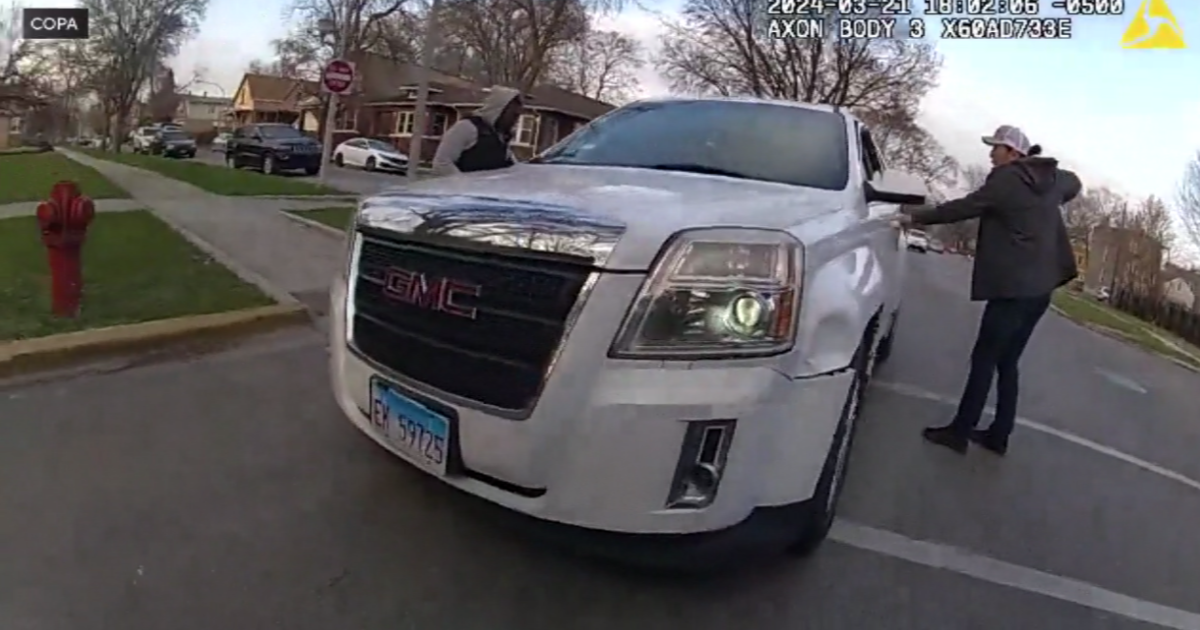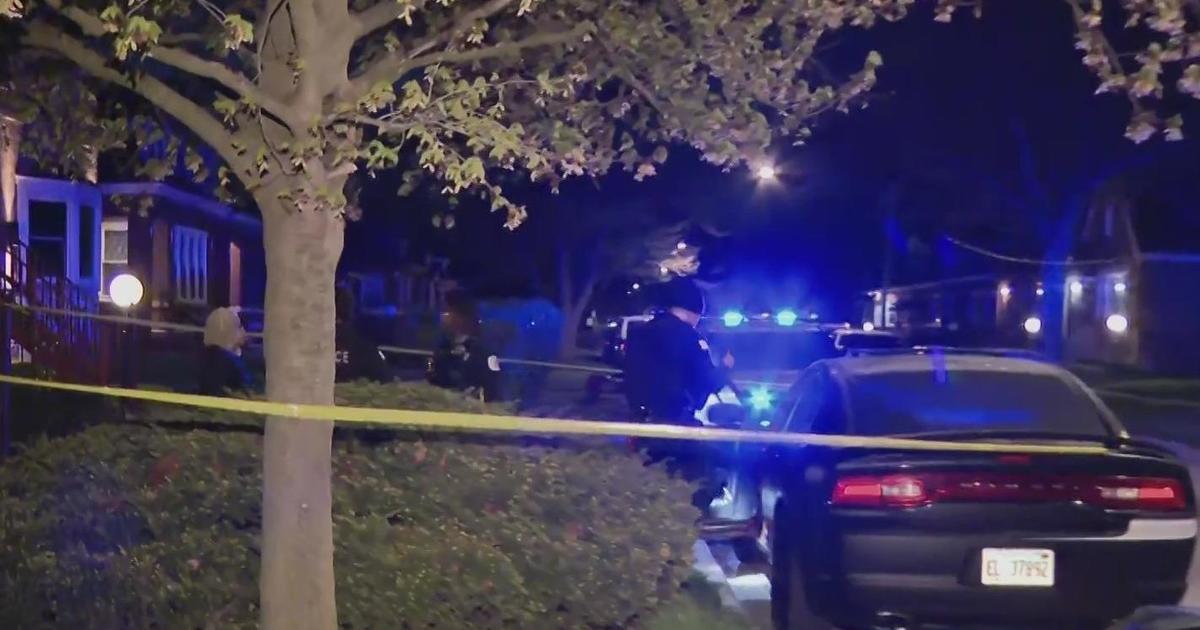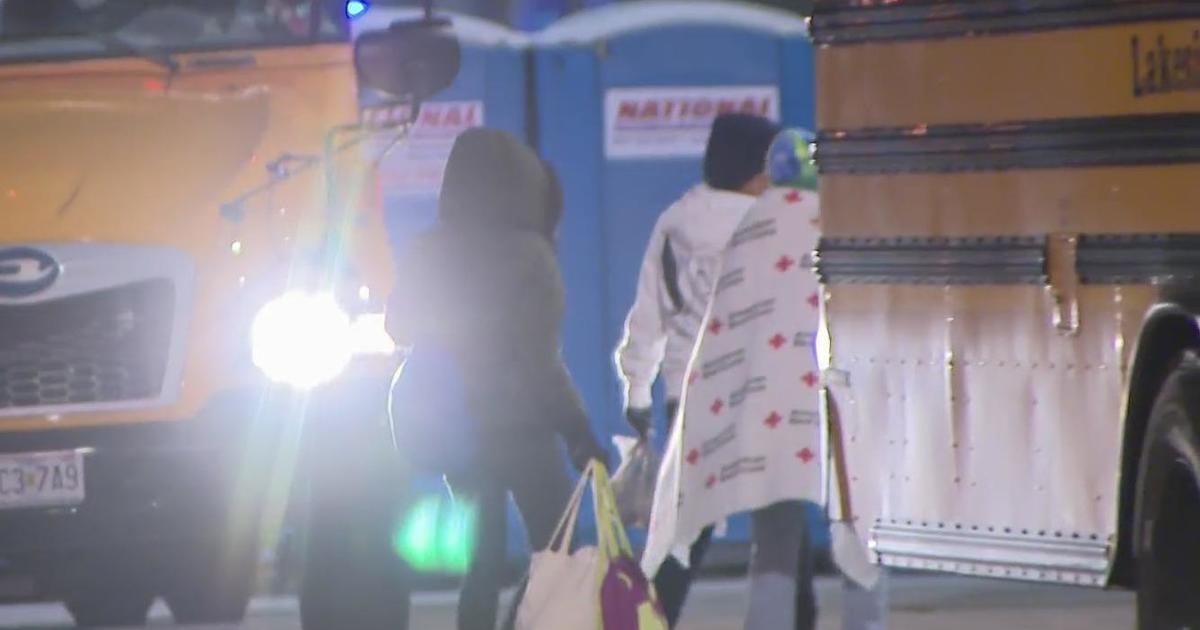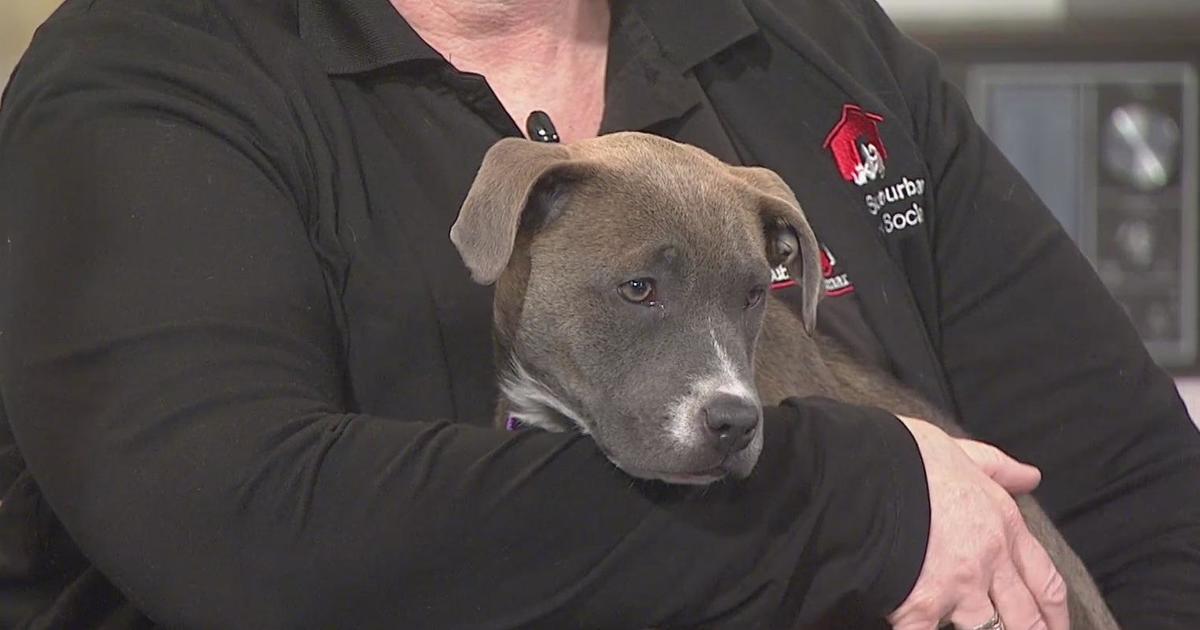Metra Adding More Trains As People Start Returning To Office, But Roll Toward Normalcy Is Slow
CHICAGO (CBS) -- Metra is expanding its schedule - adding more trains because of an uptick in the number of people returning to the office.
But it's still a slow roll towards normalcy.
CBS 2's Lauren Victory on Monday morning took us inside ridership data that's driving the commuter changes.
Chirping and chugging along, the Metra trains running now are the same old trains on the outside. But inside, no one is fighting for a seat.
Metra rider Eric Miller said he has noticed some difference in the number of people on the trains, but it's still nothing like pre-pandemic times.
"Since the weather turned, yeah, a few more (passengers), but it's still pretty light," Miller said.
Back in March 2019, 275,000 passengers rode Metra a day. Compare that 7,800 when COVID-19 first arrived.
Just last week, Metra hit a pandemic high - 29,000 daily riders, which is still only about a tenth of normal traffic.
"It's very spread out in cars," said Metra rider Katie Wilson. "Some days it's like almost nobody, and then some days, it looks like, wow, it's coming back! So it's very erratic."
"The goal is to stay ahead of the curve," said Metra spokesman Michael Gillis.
The commuter curve, that is.
Gillis explained that service on the BNSF, Milwaukee District North, and North Central lines is increasing because of an uptick in riders and customer requests for earlier trains.
"They're not too convenient," said Metra rider Joe Giarritano. "I think I may drive next week."
Another reason service is increasing on some lines, Gillis said, is that: "We had heard that some of the pharmaceutical companies up in Lake County - which is sort of a reverse commute market for us - were starting to urge their employees to come back, and so we wanted to provide that as an option."
In all, the schedule is now more than halfway back to normal.
CBS 2 wondered why about 60 percent of the trains are running with only 10 percent of ridership.
"I mean, part of it is we want to maintain the ability to physically distance on the trains," Gillis said. "We want to make sure people are comfortable."
Everyone has a different threshold with the vaccine boosting confidence.
The hope is to keep this slow but steady return on track.
The full change to the Metra schedule, as stated by Metra, is as follows:
On the BNSF Line to Aurora, two inbound and two outbound trains will be added and the schedules of two trains will be adjusted:
• Inbound Train 9510 will be added to accommodate workers who begin their shifts prior to 6 a.m. The train will depart from Aurora at 4:25 a.m., make most stops to Chicago and arrive in Chicago at 5:35 a.m.
• A new express Train 9512 will depart from Aurora at 7:40 a.m., make all stops to Downers Grove and express to Chicago, arriving at 8:45 a.m.
• For reverse commuters, a new Train 9535 will depart from Chicago at 5:50 a.m., make most stops to Aurora and arrive at 7:10 a.m.
• Outbound service is also being expanded in the early afternoon to better accommodate early rush hour travelers. Train 9539 will depart from Chicago at 3:05 p.m., operate express to Brookfield and make all stops to Downers Grove.
• The schedule of inbound Train 9406 will be adjusted to better reflect operating conditions. It will depart from Fairview Avenue 10 minutes later at 7:30 a.m. Stops at stations from Westmont to Congress Park will be 5 to 10 minutes later than the current schedule; however, the train's 8:15 a.m. arrival time in Chicago is unchanged.
• There will be a minor adjustment to the schedule of Train 9408: it will depart from Halsted Street at 6 p.m. instead of 6:08 p.m.
On the Milwaukee District North Line to Fox Lake, four new trains will be added to better accommodate reverse- and peak-commute needs, and the schedules of two outbound trains will be adjusted:
• Inbound Train 2120 will be added, departing from Lake Forest at 7:43 a.m. and arriving in Chicago at 8:37 a.m. It will be a semi-express train making only six station stops before arriving in Chicago.
• A second new inbound Train 2150, designed to assist reverse commuters, will depart from Lake Forest at 6:09 p.m. and make all stops to Chicago, arriving at 7:08 p.m.
• Outbound Train 2101 is being added to attract reverse commuters during the morning rush. It will depart from Chicago at 6:25 a.m., make all stops to Lake Forest and arrive in Lake Forest at 7:26 a.m.
• For the evening rush, outbound Train 2133 is being added. It will depart from Chicago at 4:45 p.m., make all stops to Lake Forest and arrive in Lake Forest at 5:42 p.m.
• Train 2131 will now depart from Chicago three minutes earlier at 4:42 p.m. and arrive in in Fox Lake three minutes earlier at 6:15 p.m.
• Metra is also making minor adjustments to departure times at some intermediate stations for Train 2125; however, its departure time from Chicago (3:55 p.m.) and arrival time in Fox Lake (5:28 p.m.) are unchanged.
On the North Central Service between Antioch and Chicago, one inbound and one outbound train will be added and the schedule of one existing train will be adjusted:
• A new inbound Train 110 will depart from Antioch at 7 a.m., make all stops to Chicago and arrive in Chicago at 8:39 a.m.
• A new outbound Train 117 will depart from Chicago at 6 p.m., make all stops to Antioch and arrive in Antioch at 7:40 p.m.
• Metra is also adjusting the schedule for outbound Train 115, which will now depart from Chicago 13 minutes earlier at 5:15 p.m. and arrive in Antioch at 6:42 p.m.
Also, on the Milwaukee District West Line to Elgin, there will be minor adjustments to the schedules of two existing trains:
• To better reflect actual operating conditions, outbound Train 2227 will now arrive at Big Timber Road at 6:02 p.m., four minutes later than current schedule.
• Train 2237, which departs from Chicago at 5:23 p.m., will now stop at Franklin Park.



